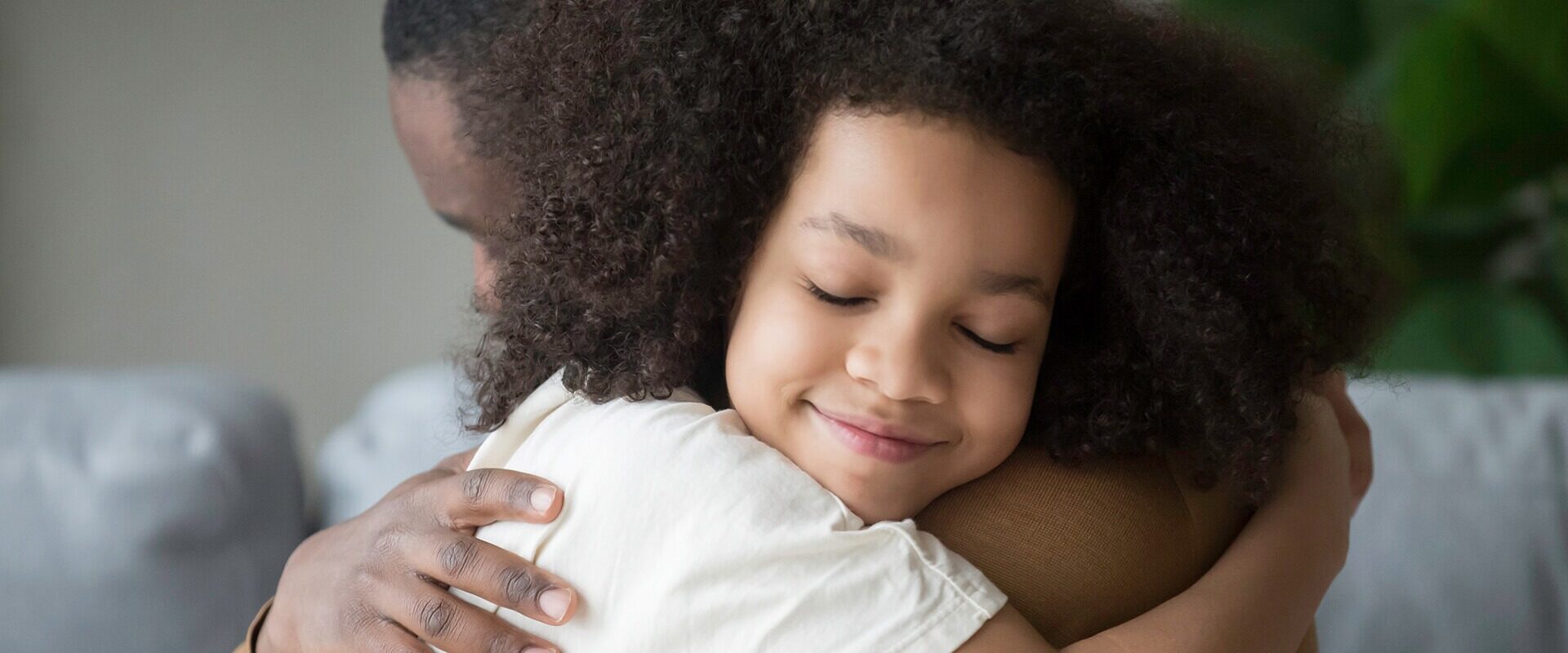You know the process of losing or gaining custody of your children can be overwhelming and emotionally charged. You want the best outcome for your child but may be unsure how to prove this to the court or what criteria the judge is using when evaluating your case. Fortunately, an experienced custody lawyer in Norfolk can guide you through this challenging process.
Your custody order might be worth contesting for any number of reasons. Let the top-rated, aggressive, and passionate family law attorneys at Melone Hatley, P.C. help you pursue your child custody case. We’ve handled thousands of divorce, custody, and child support cases. Let us put our experience to work for you and your children.
We protect your family, your finances, your future. Reach out to us to set up a free consultation with one of our Norfolk family lawyers.
Different Types of Child Custody in Norfolk

In Virginia, pursuant to Virginia Code 20-124.1, parents can seek different types of physical and legal custody. The focus is primarily on arrangements between the parents, with grandparents and others not prioritized. An experienced Norfolk child custody attorney can assist you with every aspect of your custody battle.
Legal custody grants you or your spouse the right to make significant decisions about your child’s welfare, including education, medical care, and discipline.
Physical custody determines where your child will live and the visitation schedule with the other parent.
Within these main categories, there are different types of joint or sole custody arrangements:
- Temporary custody
- Joint legal custody
- Sole legal custody
- Sole physical custody
- Primary physical custody
- Shared physical custody
- Split custody
Temporary Custody
With temporary custody, your child lives with one parent temporarily until the court can establish permanent custody. This short-term arrangement is usually appointed during a pendente lite hearing or by an agreement of the involved parties.
Temporary custody can also be awarded as an emergency order if there is concern about the safety of your child in the household of either parent.
Joint Legal Custody
You and your partner share equal rights to make essential decisions for your child under joint legal custody. These decisions can involve the overall health, education, and individual welfare of your child.
Sole Legal Custody
Sole legal custody refers to you or your partner’s right to make important decisions that affect the health, education, and welfare of your child. The noncustodial parent won’t have input in these decisions.
Sole Physical Custody
When your children live with just one parent in a single location, it is called sole physical custody. However, the other parent may still share legal custody and have visitation rights.
Primary Physical Custody
Primary physical custody results in your child living with one designated parent most of the time while spending a smaller amount of time with another party, usually the other parent. The parent with primary physical custody will, more often than not, have the ability to make day-to-day decisions for your child’s needs.
Shared Custody
Shared custody is when the custody schedule is more evenly split between the parents. In simple cases where the parents live near each other, parents may receive a court order for a 50/50 shared schedule.
The schedule can also include such specifications as one week on, one week off, or any other time variation. An exchange of weekends is often a common part of schedules as well.
Split Custody
Although rare, split custody does exist in Virginia. This type of custody refers to parents having custody of different children. The father may have custody of one and the mother another. Considerations that factor into this type of custody arrangement include the ages and maturity levels of your children and the preferences they express.
An experienced custody and visitation attorney in Norfolk can help ensure that your rights are protected during a custody hearing and give you the best chance of an outcome that meets your goals and protects your child.
Schedule your free meeting with our team today to see if our Child Custody Lawyers can help you.
In Which Court Are Child Custody Cases Heard?

For families in Hampton Roads, the Juvenile and Domestic Relations Court (JDR Court) will generally hear child custody, support, and visitation cases unless you are also seeking a divorce. For parents who do not have a previous order from a different court, you will file a petition here requesting either custody or visitation agreements.
A JDR judge will hear your case and make a ruling. However, if you are determining custody and visitation due to divorce, your matter can be heard in the Circuit Court along with your divorce. An experienced Norfolk divorce lawyer can help you file for custody with the appropriate court.

Norfolk Child Custody Lawyer Near Me 800-479-8124
How Norfolk Courts Determine the Custody of a Child
When determining custody, the courts will look to the best interests of your child, as stated in Virginia Code Section 20-124.3. Factors that will be a part of the decision include the following:
- Age and mental health
- Needs of your child
- History of violence
- Parent’s relationship to child
Age and Mental Health
The court will consider the age and mental or physical condition of your child and each parent. It will also consider a child’s changing development needs.
Needs of Child
The needs of each child will be considered when determining custody. These needs may include relationships with siblings, extended family members, and peers.
History of Violence
The court will look at any domestic violence history, real or threatened child abuse, personal injury, or other criminal defense matters. If a parent is deemed neglectful or abusive, the court can deny or limit visitation or custodial rights.
Your Relationship to Your Child
The court will consider your and your partner’s relationship with your child. It will also consider the role you and your partner held in caretaking prior to seeking a custody arrangement order and the future role they are to play.
In some custody cases, a judge will appoint a guardian ad litem to serve as an independent voice in making recommendations in the best interest of your child. This guardian ad litem will be an attorney with the capability to conduct investigations, schedule interviews, and be present at court hearings and mediations.
Click to contact our Norfolk Family Lawyers today
How Child Visitation Is Determined in Norfolk

Visitation is a legal issue and refers to when parents spend time with each child. The court will consider the same factors as when deciding on custody to determine a visitation schedule. Schedules will vary and depend on factors such as a parent’s work schedule, the distance between the two parents, and your child’s schedule for school.
Other parties can seek visitation of a child as well. You will often see this with grandparents, close relatives, and stepparents. The court may also deny visitation rights to either parent or outside party if it is not in your child’s best interest. When petitioning the court for visitation, the following may need consideration:
- Will the visitation be enjoyable for your children?
- Will the visitation encourage bonding between you and your child?
- Will the visitation make sure that the custodial parent grants access to your child?
- Does your child want the visitation (if old enough to make such a preference)?
The court will examine the motives behind a visitation request, and it may be denied if the requestor had put your child at risk at any time in the past. These are reasons to consider seeking legal representation for visitation requests as well as custody arrangements.
Schedule a call with one of our client services coordinators today
How Child Support Is Calculated in Norfolk
Child support calculations follow a defined formula in the Commonwealth of Virginia. This formula is based on the premise that children should have the same level of support that would normally occur if both parents lived together. The information considered when making a decision includes the following:
- Income
- Alimony or spousal support
- Medical insurance for your child
- Child expenses
Income
The court will consider the combined income from all sources of you and your spouse in your child support case.
Alimony or Spousal Support
When spousal support payments also exist, this will likely be considered and could affect the final child support amounts.
Medical Insurance for Your Child
Assuming that both parents cover medical expenses, your child’s medical insurance coverage will be taken into consideration when calculating child support.
Child Expenses
Child expenses may include daycare fees and other daily or periodic needs of your child.
How a Norfolk Custody and Visitation Attorney Can Help You Change Your Custody Agreement

If you are seeking to change or amend your custody agreement, you must start by filing a motion with the Juvenile and Domestic Relations Court. The family law judge will then review and evaluate your change request, incorporating the same considerations as the court that decided on the custody initially.
These considerations include the best interests of your children and, if age-appropriate, your child’s current preferences. You may file more than one request for custody modification in Virginia but must always include a valid reason for doing so.
Do You Believe Your Children Are Safe in Your Partner’s Care?
When you are feeling the strain of child custody and visitation issues, the stress can become overwhelming; when you have concerns about your child’s safety while in your partner’s care, it can be especially troubling. In such cases, filing an emergency motion may be necessary.
Emergency child custody in Virginia can be essential for removing your child from harm’s way. An experienced custody and visitation attorney serving Norfolk can help you file a motion to grant temporary emergency custody while you await a hearing for a permanent custody arrangement.
Need an Experienced Custody Attorney? Choose Melone Hatley, P.C.
When it comes to your children, you naturally want what is best for them. To help achieve this, you need an experienced family law attorney in your corner. The child custody lawyers with Melone Hatley, P.C. have the experience and more to seek the most favorable solution for your family and also represent you throughout the process.
Furthermore, they can help you if you seek any future modifications to the custody agreement. We know who you choose to represent you and your family, and that is an important decision. Learn more about what sets our firm apart.
Experienced and Aggressive
We have years of experience handling and mediating child custody and visitation matters. When necessary, we can also be aggressive to obtain the results you need to provide the best solution for the family.
Highly Rated by Clients
Our clients make us the top-rated attorneys in Virginia, including here in Norfolk. Satisfied clients cite our ability to remain efficient, provide thorough legal services, and give realistic and practical legal advice in a caring manner.
Big Law Firm in a Boutique Setting
We combine the experience and the resources of a big law firm into a boutique setting, so you get all you need with one family law firm.
Individualized Approach
Every case is different, and our child custody attorneys understand this. Likewise, we always take an individualized approach when dealing with each case. We give you one-on-one attention, attending to your specific goals and how we can meet your needs.
Client-Centered
We realize that not every parent is the same. How you deal with the emotional issues revolving around a custody issue is yours alone, and we value where you are in the process. The attorney-client relationship is paramount to us, and we will always remain centered on your needs and goals.
To help our clients, we offer free eBooks and resource guides surrounding family law matters and other practice areas.
Get Help From an Experienced Custody and Visitation Lawyer Serving Norfolk Today
Whatever the situation with your family, the experienced and caring Norfolk custody and visitation lawyers with Melone Hatley, P.C. are here to help you find a better way.
To request an appointment in Norfolk, Virginia, contact us by calling our law office today or filling out the contact form on this site and setting up your free initial case evaluation.
Disclaimer: All child custody cases are unique, and the information on this page should not be taken as legal advice. You should speak with an attorney before seeking legal action.
Schedule a call with one of our client services coordinators today.


























